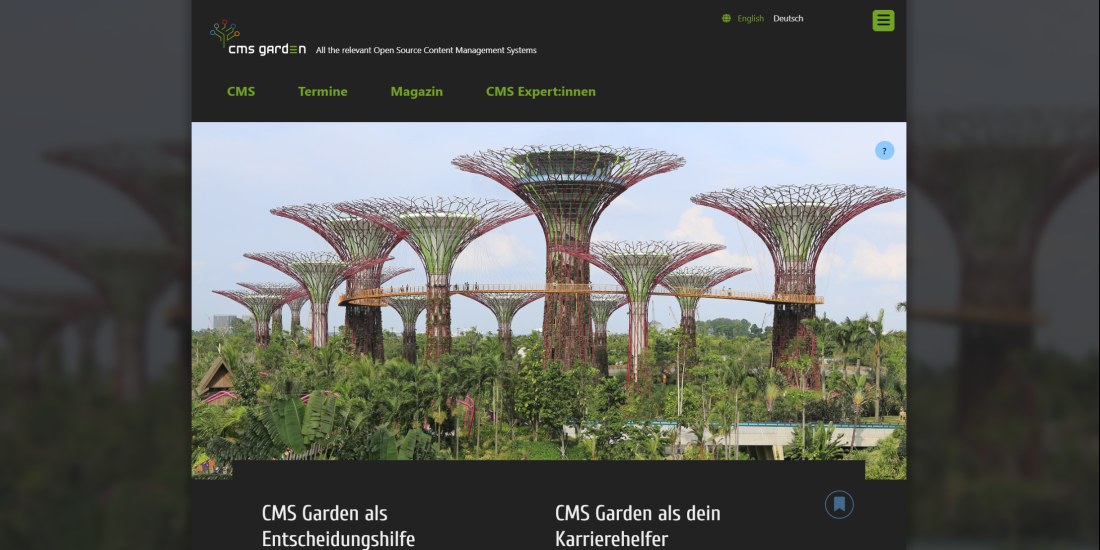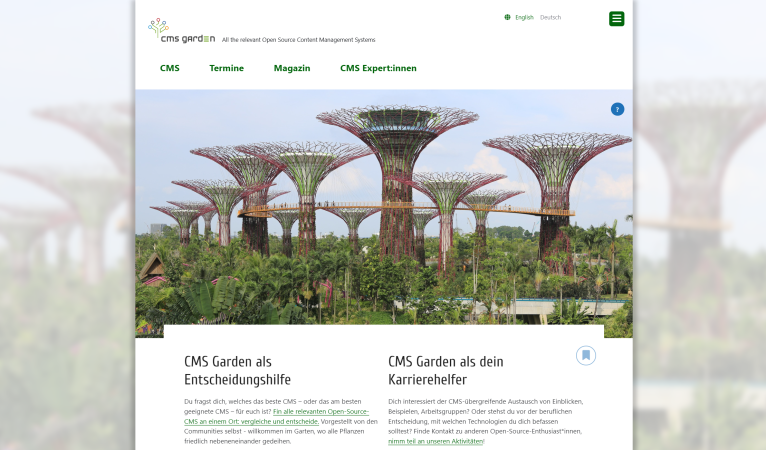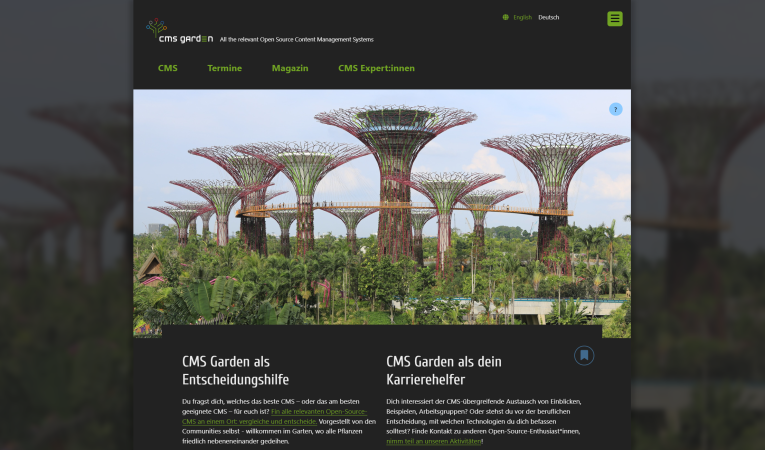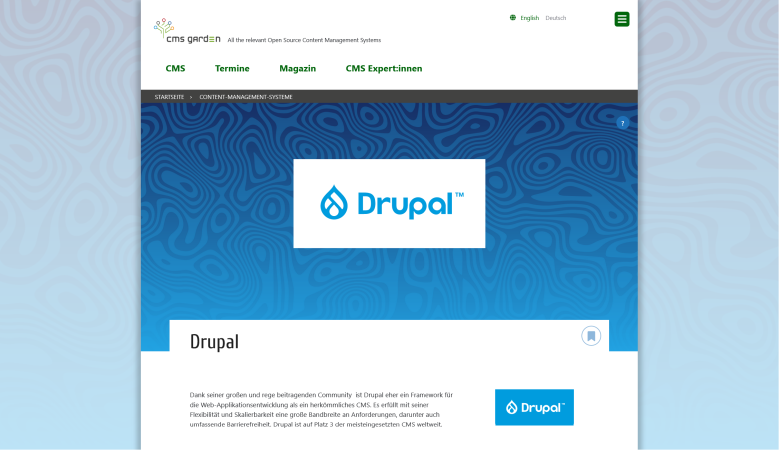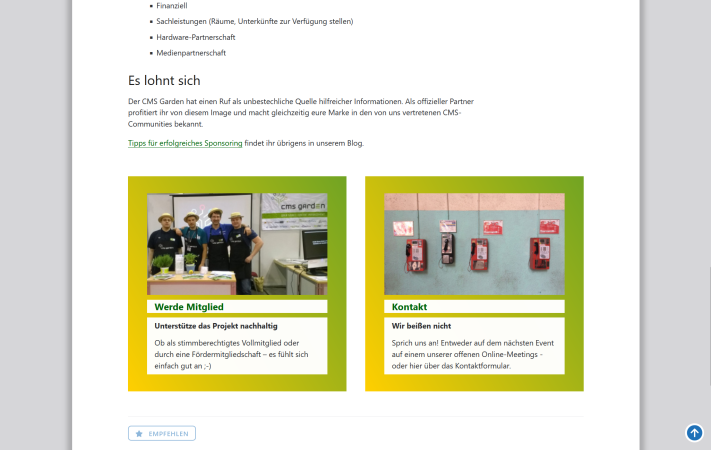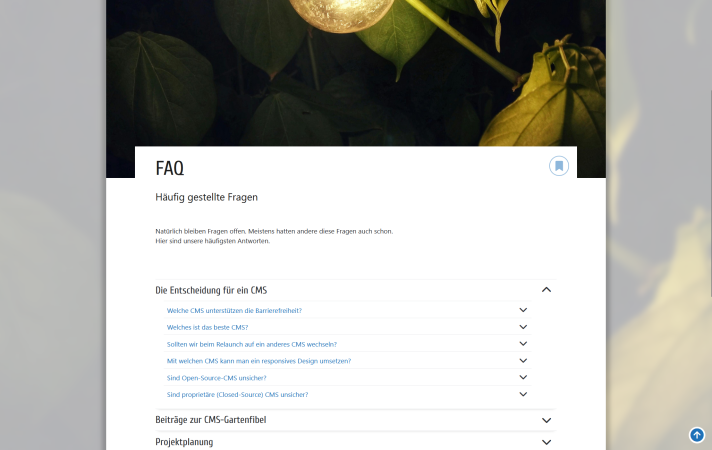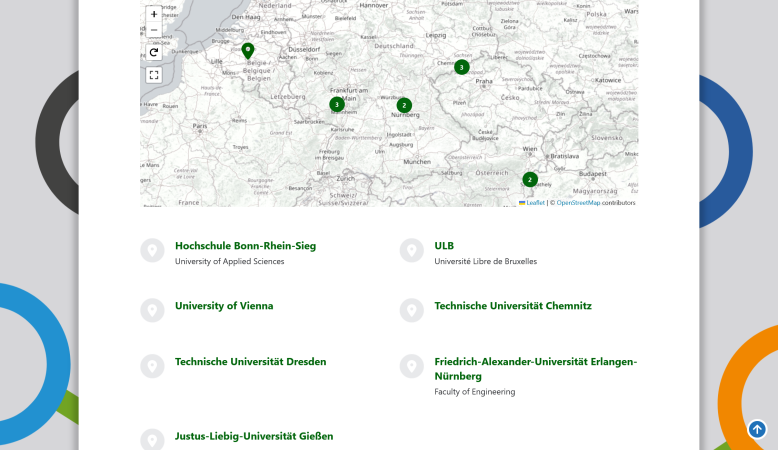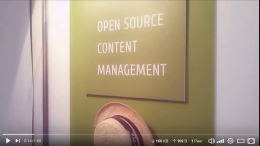If we take a broader definition of culture, all initiatives are part of social culture. Seen in this light, many open source communities are globally networked cultural institutions that are mostly organized on a decentralized basis. The CMS Garden found OpenCulturas ideal for its purposes. And has contributed some further developments.
Commonalities
An essential part of the open source culture are the events, many of which are organized collaboratively. There is a wide range of formats here: Conferences, barcamps, meetups, workshops, certification training, joint sports camps, code sprints, etc. Many of these events are repeated annually, sometimes at fixed locations, sometimes at changing locations. The organizers also change, but you often meet them again in other projects and other roles (e.g. as workshop leaders, board members of associations, speakers at conferences).
CMS Garden aims to make it easier to find suitable locations for such events by providing overview pages such as "Conference center", "Multifunctional location" or "Gastronomy" to give an overview of the locations where open source events have already taken place.
News, press releases and blog posts are also always needed in open source communities. Because OpenCulturas relies on keywording instead of dedicated content types, the CMS Garden hopes to make work easier. In the past, there was often enough confusion as to whether an article was a blog post or a news item.
Reusable media also makes work much easier. Especially if many of them have been entered under a Creative Commons license along with copyright information. This allows the CMS Garden to combine the contributions of different volunteers, for example if an "ambassador" enters photos of a campaign and a participant can use them to illustrate her article about this campaign.
Creative interpretations
Elements of OpenCulturas were creatively repurposed in order to minimize the number of individual solutions and thus the maintenance effort:
Profile roles
"Just interested" and "organizer" are suitable out of the box but "Artist/s" was not. Is was sufficient to use translations (allowing custom translations for english default text) to re-label this role with "CMS ambassador". Profiles can still only be referenced as organizers if they have the corresponding role and ambassadors are listed on an expertise page. Who wants neither, simply stays with "Just interested".
Focus category = Content Management System (CMS)
All content on the CMS Garden website has to do with one or more CMS. The existing keywording, which is already available for all content types, was therefore relabeled with translations, too. The names of the content management systems were entered as categories, i.e. WordPress, Joomla!, Drupal, Plone and so on.
Further development as a joint project
When the development of OpenCulturas had progressed so far that the first projects could be launched, the board of CMS Garden e. V. decided to discard the prototype for their own website relaunch and use OpenCulturas as the basis. A few individual components were developed, such as a content type for the portraits of the participating open source content management systems, which in turn require structured data that can hardly be reused generically.
However, the majority of the development budget went into components that were created generically for OpenCulturas:
- Individual teaser design for Content, keyword pages, and external links
- FAQ—Content type and categories for frequently asked questions and frequently given answers
- Dedicated type keywords for all content types for locations, events etc.
- oEmbed module to connect a self-hosted media center
Follow the links to read volunteer-produced handouts that have been contributed here for the benefit of all OpenCulturas site owners.
The back story
Admittedly, the contact was not purely coincidental. The Landschaftsverband Südniedersachsen, the driving force behind the software development, contacted CMS Garden during the preliminary planning phase for kulturis and took advantage of the non-profit association's consulting services. The association is committed to raising awareness of the strengths and weaknesses of open source content management systems.
As chance would have it, members of CMS Garden had already been working on improving the publication of events in their own calendar for some time and had a concept for distributed, reusable components that fitted well with the kulturis Kulturatlas requirements. In good open source fashion, this concept was made available free of charge.
